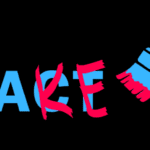
The Rise of Misinformation on the Internet: A Growing Concern for Elderly and Less Educated Users

In today’s digital age, the internet has become a primary source of information for billions of people worldwide. From the latest news updates to critical medical advice, search engines like Google serve as the go-to resource for almost anything. However, this unprecedented access to information comes with a significant downside: the rampant spread of misinformation. This issue is particularly concerning for elderly individuals and those who may not have a high level of education, as they often place uncritical trust in the information presented to them online.
The Proliferation of Misinformation
The internet is a vast and complex ecosystem where information can be published by anyone, anywhere, at any time. This democratization of information has its benefits, but it also opens the door to a flood of inaccurate, misleading, or outright false content. Unlike traditional media outlets, which typically adhere to rigorous editorial standards, the internet lacks a centralized authority to verify the accuracy of the information. This absence of regulation has led to the rapid proliferation of misinformation on a wide range of topics, from politics to health.
A study by the Pew Research Center found that 64% of adults in the U.S. believe that misinformation has caused a great deal of confusion about basic facts of current events. Moreover, a significant portion of this misinformation is consumed and shared by individuals who may not have the skills or knowledge to critically evaluate the sources and accuracy of the information they encounter.
| Impact of Misinformation | Percentage of U.S. Adults |
|---|---|
| Caused confusion about facts | 64% |
| Believed misinformation | 51% |
| Shared misinformation | 23% |
The Vulnerability of Elderly and Less Educated Users
Elderly individuals and those with lower levels of education are particularly vulnerable to the dangers of misinformation. Many of these users grew up in an era when information was more tightly controlled and regulated, often by government agencies or respected institutions. As a result, they may not be as skeptical of the content they find online, mistakenly assuming that if something is on the internet—especially if it appears in a Google search result—it must be true.
A report by the National Academy of Sciences found that older adults are more likely to consume and share false information, particularly on social media platforms. The same study highlighted that this demographic is less likely to fact-check the information they encounter online, increasing their susceptibility to believing and spreading misinformation.
The Role of Search Engines
Search engines like Google play a crucial role in the dissemination of information. However, it is important to understand that Google is not a content creator; it merely indexes content that exists on the web. Google’s algorithms prioritize relevance and popularity over accuracy, which means that highly shared or linked content—regardless of its truthfulness—can appear at the top of search results.
This algorithmic approach can be problematic when it comes to critical areas like health. A study published in the Journal of Medical Internet Research found that 20% of the top health-related search results on Google contained inaccurate or misleading information. For someone seeking medical advice, especially the elderly or less educated, this misinformation could lead to dangerous consequences.
| Category | Percentage of Misinformation |
|---|---|
| Health-related search results | 20% |
| Political content | 30% |
| Science-related topics | 15% |
The Need for a Solution
The growing problem of misinformation on the internet is not one that can be solved easily, but it is one that must be addressed. Major tech companies like Google have a responsibility to find ways to mitigate the spread of false information, particularly in critical areas such as health, safety, and politics.
Several strategies could be employed to tackle this issue:
- Enhanced Fact-Checking: Google and other search engines could partner with fact-checking organizations to ensure that the most accurate and reliable information is prioritized in search results.
- Algorithmic Adjustments: Search engines could tweak their algorithms to prioritize content from verified sources, such as peer-reviewed journals or reputable news outlets, especially for searches related to critical topics.
- User Education: Providing users with tools and resources to help them critically evaluate the information they encounter online could also be beneficial. This might include pop-up warnings for potentially unreliable content or educational campaigns aimed at improving digital literacy.
- Transparency in Algorithms: Search engines could be more transparent about how their algorithms rank content, giving users a better understanding of why certain results are shown.
Conclusion
The internet is a powerful tool for accessing information, but it is also a breeding ground for misinformation. Elderly individuals and those with lower levels of education are particularly at risk of being misled by false information found online. As this issue continues to grow, it is imperative that tech giants like Google take steps to address the problem. By enhancing fact-checking, adjusting algorithms, and educating users, we can begin to combat the rise of misinformation and ensure that the information people rely on is accurate and trustworthy.
This growing challenge requires a collective effort from both tech companies and users to create a safer, more reliable digital environment for everyone.
Hello, I am Aman (: Full Time Traveler :) At the age of 41, in April 2023, fueled by my love for travel and the determination not to remain fixed like a tree, I embarked on a bold journey. Having dedicated 17 years to a corporate job, I chose to transition from a full-time employee to a full-time traveler, driven by the desire to break free from the routine and constraints of a conventional life. Along the way, I not only explored the wonders of travel but also uncovered the transformative power of financial freedom. I realized how it could liberate me to lead a life teeming with adventure, purpose, and fulfillment. Through my blogs, I am passionately sharing my story, aiming to inspire and provide valuable guidance to those, like me, who aspire to weave travel into a life overflowing with limitless possibilities.






















Post Comment
You must be logged in to post a comment.